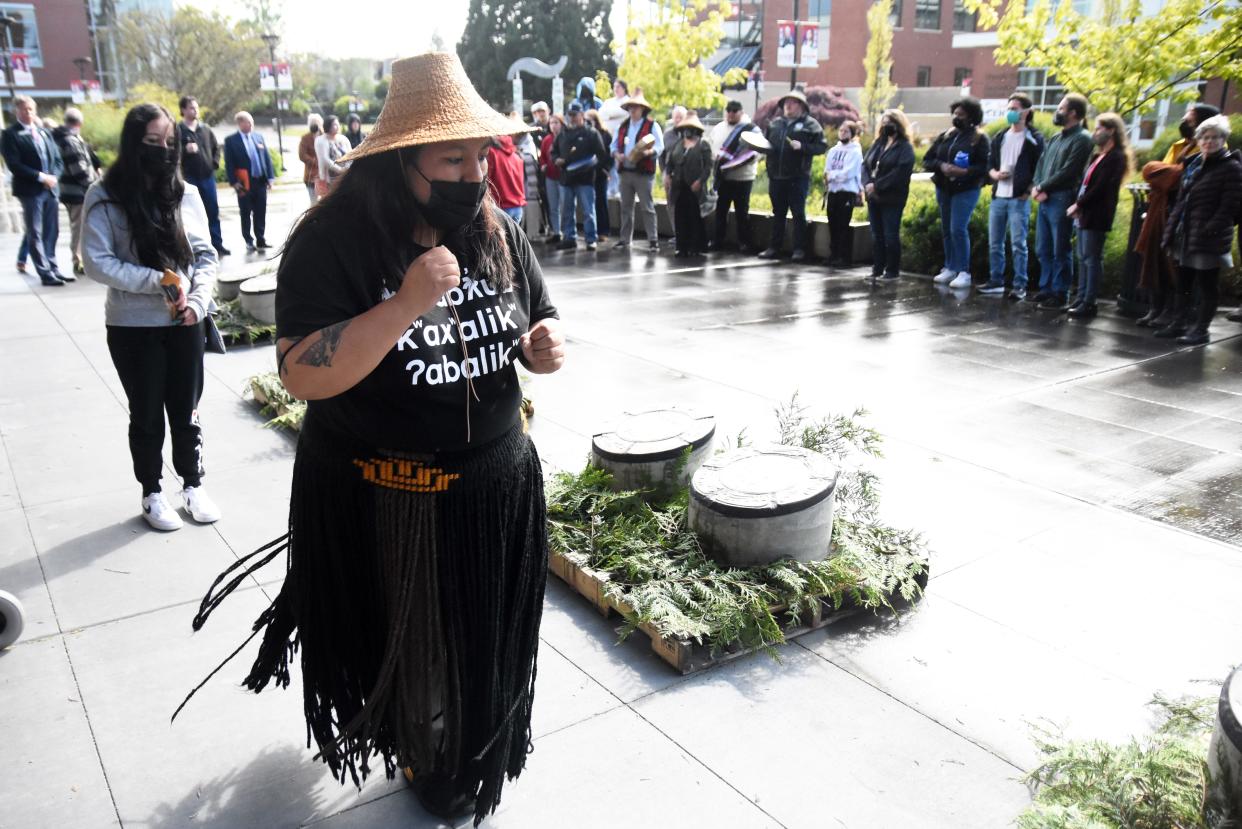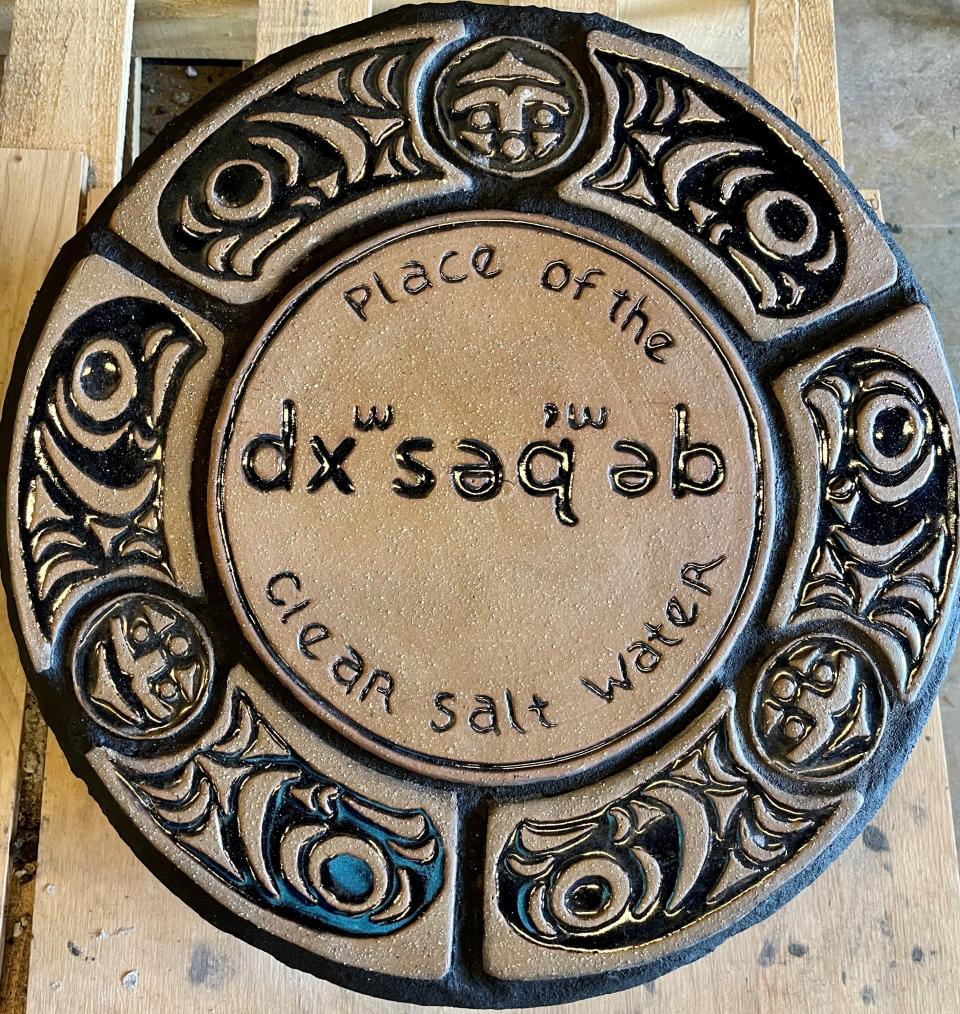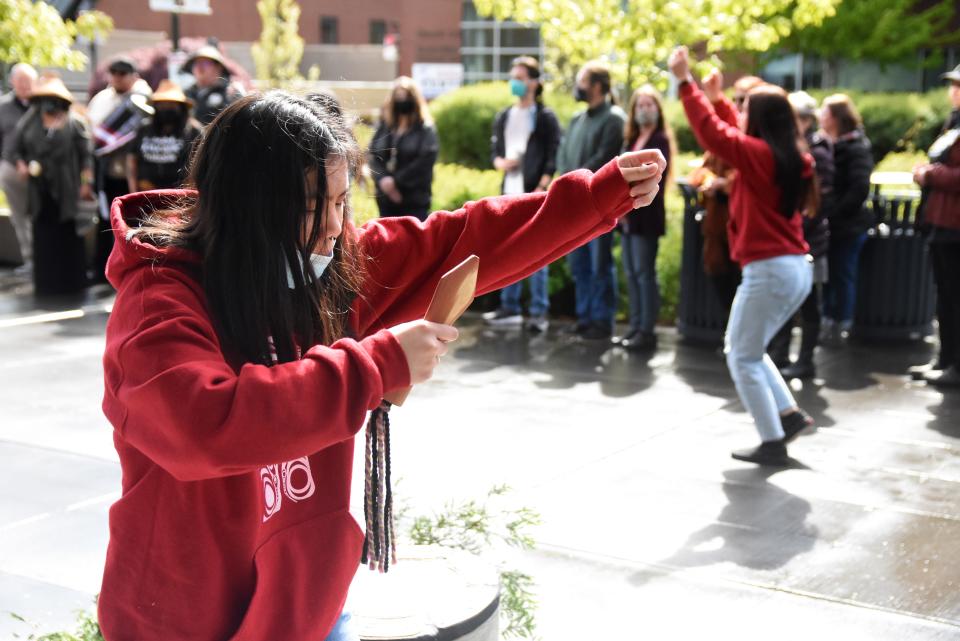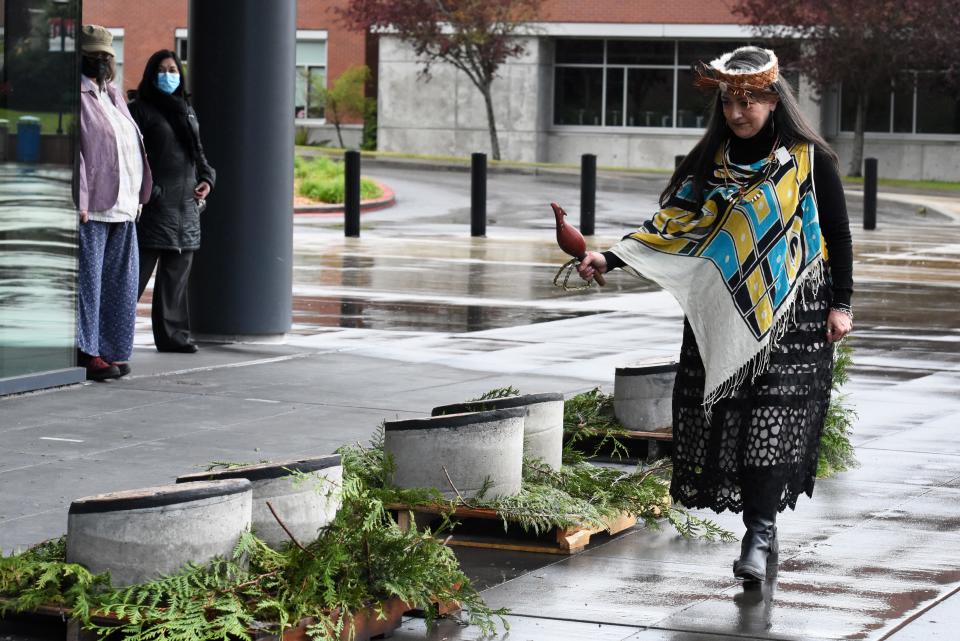'You always acknowledge the ancestors:' Olympic College recognizes tribe with new markers

BREMERTON — Valerie St. Pierre grew up in the plains of Montana, where, as a member of the Apsáalooke Nation, she always took the time to learn some greetings and phrases of her fellow tribes when traveling on their lands. It was one way she found to pay respect and honor those who came before her.
"You always recognize the land you are standing on," she said. "And you always acknowledge the ancestors."
So when she began attending courses at Olympic College prior to the pandemic, she was shocked to find no acknowledgment of the Suquamish Tribe, whose ancestors have inhabited the Kitsap Peninsula for thousands of years, as well as other indigenous peoples, including the Duwamish, Squaxin and Skokomish.
"I thought I'd find a building, a bench, or perhaps a tree, that honored the ancestors here," she said. "Instead, all I found was some cedar baskets tucked away in the corner of the library."
She set out to change that.

"I knew this place needed some spiritual healing," said St. Pierre, who now works in the campus' multicultural services and is president of the Native American and Indigenous Student Club.
St. Pierre partnered with Deanna Pindell, a professor who teaches Northwest Native Art history at the college, to find a way to add Lushootseed, the Coast Salish language, to the campus. Pindell applied and won a grant, and the pair commissioned Ty Juvinel of the Tulalip Tribe and Anthony Jones of the Port Gamble S'Kllalam Tribe to produce designs for the series of markers.
"When we preserve the language, we preserve the culture," St. Pierre said.
It took four years and more than 50 people to arrive at the finish line this month: eight markers with Lushootseed basics, like counting to nine, "Good Day," and "Place of the Clear Salt Water," the translation of Suquamish. Each one was glazed in the college's kiln and attached to cement posts. Soon, they'll be dispersed throughout campus.

“We hope these markers will serve as a beautiful welcome to campus while also fostering a sense of respect for the land’s history," Olympic College President Marty Cavalluzzi said.
More: Port Gamble S'Klallam march marks day for missing, murdered Indigenous women
Leonard Forsman, chairman of the Suquamish Tribe, said in a statement he was grateful for the college's efforts.
“The Suquamish people and our ancestors have lived on these lands since time immemorial," he said. "We appreciate the work of students and staff at Olympic College and the artists, who used language and art to acknowledge our continued presence.”

St. Pierre also spurred the effort to get the college to commit to a statement that acknowledges the campus sits on lands long held by the Suquamish and other Indigenous peoples. And she says her work isn't done yet. She believes the campus could one day become home to a longhouse, also a tradition of the Suquamish Tribe.
"When you recognize the ancestors, the healing process can begin," she said.
This article originally appeared on Kitsap Sun: Olympic College recognizes Suquamish Tribe with new carved markers

